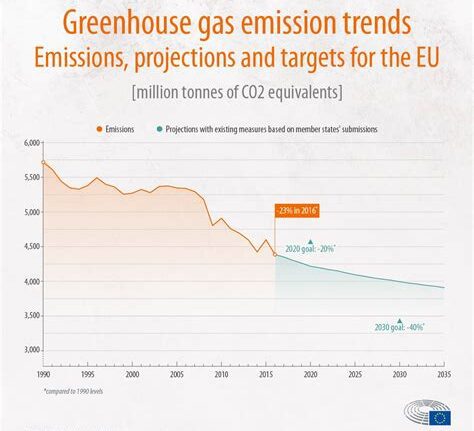In the realm of environmental discussions, one particular statement made by former President Donald Trump reverberated across both scientific circles and public discourse. “Auto emissions don’t affect the environment,” he confidently declared. This assertion, while bold, was met with skepticism and concern from experts in fields ranging from climate science to urban planning.
Understanding Auto Emissions
To delve into this topic, it is crucial to comprehend what auto emissions entail. When vehicles burn fuel for power, they release a concoction of gases and particulate matter into the air. These pollutants include carbon dioxide (CO2), nitrogen oxides (NOx), volatile organic compounds (VOCs), and particulate matter (PM).
The Environmental Impact
Contrary to Trump’s statement, these emissions have far-reaching consequences for the environment. CO2 is a greenhouse gas that contributes to global warming and climate change. NOx and VOCs react in the atmosphere to form ground-level ozone and smog, leading to respiratory issues and harming plant life.
Expert Insights
Experts in environmental science emphasize the detrimental effects of auto emissions on air quality and public health. Dr. Sarah Lopez, a leading researcher in atmospheric chemistry, notes that “auto emissions play a significant role in degrading air quality, especially in urban areas where traffic congestion is high.”
Policy Implications
The debate around auto emissions extends beyond scientific realms into policy discussions. Regulations on vehicle emissions have been implemented globally to curb pollution levels and mitigate their impact on human health and ecosystems.
As policymakers grapple with balancing economic interests against environmental concerns, it becomes evident that acknowledging the influence of auto emissions is pivotal.
Raising Awareness
Educating the public about the environmental repercussions of auto emissions remains crucial in fostering sustainable behaviors. Initiatives promoting carpooling, public transportation use, cycling infrastructure development, and electric vehicle adoption are vital steps towards reducing our collective carbon footprint.
In conclusion, while Trump’s assertion may have sparked controversy, it serves as a reminder of the ongoing dialogue surrounding environmental stewardship and the need for informed decision-making regarding policies that impact our planet’s well-being.









Leave feedback about this